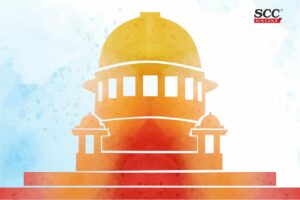Supreme Court: The 3-judge bench of AM Khanwilkar, BR Gavai* and Krishna Murari has explained the true test to determine whether a party has waived its rights or not. It has held that for establishing waiver, it will have to be established, that a party expressly or by its conduct acted in a manner, which is inconsistent with the continuance of its rights. There can be no waiver unless the person who is said to have waived, is fully informed as to his rights and with full knowledge about the same, he intentionally abandons them.
“As such, for applying the principle of waiver, it will have to be established, that though a party was aware about the relevant facts and the right to take an objection, he has neglected to take such an objection.”
However, the mere acts of indulgence will not amount to waiver. A party claiming waiver would also not be entitled to claim the benefit of waiver, unless it has altered its position in reliance on the same.
The Court explained that a waiver cannot always and in every case be inferred merely from the failure of the party to take the objection. Waiver can be inferred, only if and after it is shown that the party knew about the relevant facts and was aware of his right to take the objection in question.
“The waiver or acquiescence, like election, presupposes, that the person to be bound is fully cognizant of his rights, and that being so, he neglects to enforce them, or chooses one benefit instead of another.”
Distinguishing waiver from estoppel, the Court explained that the principle of waiver although is akin to the principle of estoppel; estoppel is not a cause of action and is a rule of evidence, whereas waiver is contractual and may constitute a cause of action. It is an agreement between the parties and a party fully knowing of its rights has agreed not to assert a right for a consideration.
“… whenever waiver is pleaded, it is for the party pleading the same to show that an agreement waiving the right in consideration of some compromise came into being.”
The Court also explained the difference between waiver and acquiescence and said that for constituting acquiescence or waiver it must be established, that though a party knows the material facts and is conscious of his legal rights in a given matter, but fails to assert its rights at the earliest possible opportunity, it creates an effective bar of waiver against him. Whereas, acquiescence would be a conduct where a party is sitting by, when another is invading his rights. The acquiescence must be such as to lead to the inference of a licence sufficient to create a new right in the defendant.
[Kalparaj Dharamshi v. Kotak Investment Advisors Ltd, 2021 SCC OnLine SC 204, decided on 10.03.2021]
*Judgment by: Justice BR Gavai
Appearances before the Court by:
For Kalparaj: Senior Advocates Mukul Rohatgi, Dr. Abhishek Manu Singhvi and Pinaki Mishra,
For Deutsche Bank and CoC: Senior Advocate K.V. Viswanathan
For Fourth Dimension Solutions Limited: Senior Advocates C.A. Sundaram, Gopal Sankar Narayanan and P.P. Chaudary,
For RP: Senior Advocates Shyam Divan
For KIAL: Senior Advocate: Senior Advocate Neeraj Kishan Kaul

